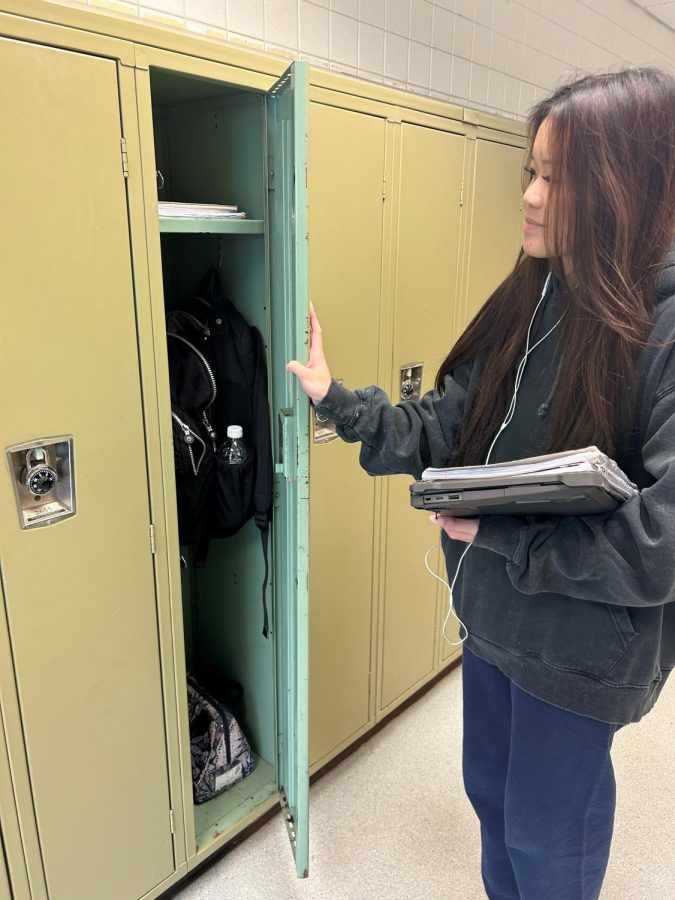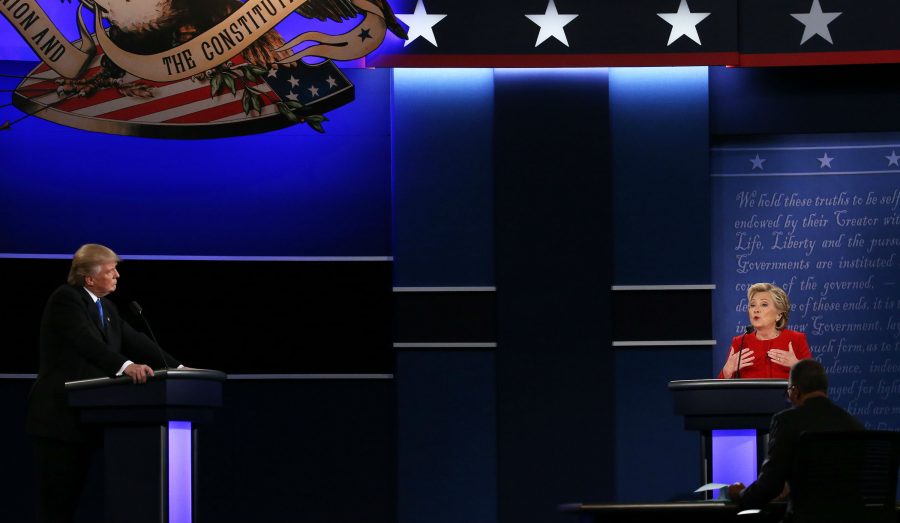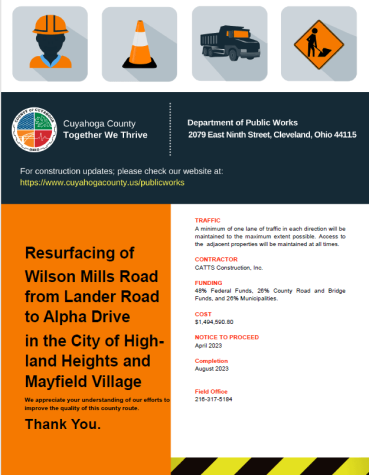Clinton directed towards White House
Democrat Hillary Clinton, right, and Republican Donald Trump during their first presidential debate on Monday, Sept. 26, 2016 in Hempstead, N.Y.
October 2, 2016
Now that the first presidential debate is in the books, we as Americans are on the verge of having a new president.
Come this November, it seems as if one of Hillary Clinton or Donald Trump will be elected to lead our country for the next four years. If the first party versus party debate is any precursor, it seems as if Clinton is destined for the Oval Office.
Most recently serving as Secretary of State from 2009 to 2013, the Democratic Clinton was able to effectively attack Trump. What was impressive about it was the fact that she was able to effectively wait for an opening and pounce when one was created as opposed to openly speaking out.
When moderator Lester Holt asked Trump about his refusal to release his tax returns, Clinton responded with, “Maybe he is not as rich as he says he is. Maybe he is not as charitable as he claims to be…Maybe he doesn’t want the American people to know that he has paid nothing in federal taxes.”
Ironically for Republicans, it was Trump—who bashed Clinton for coming to the debate prepared—that sputtered. Due to the fact that it was a one on one debate, Trump seemed somewhat out of his element as he was unable to rely upon others like in previous Republican debates.
Another disappointment for Republicans was that Trump rarely—if ever—went after Clinton in regards to the 2012 Benghazi attacks or her email ordeal, which are seemingly key points in taking down the Democrats.
However, it wasn’t all downhill for Trump. One key idea was reached when Trump discussed Clinton’s support of the 2012 Trans-Pacific Partnership. The partnership which, according to the Office of the United States Trade Representative, sets “a new standard for global trade while taking up next-generation issues,” is no longer supported by Clinton after she previously praised it, saying in her 2010 remarks to the Council on Foreign Relations that “We want to realize the benefits from greater economic integration. In order to do that, we have to be willing to play.”
“To this end … we’re pursuing a regional agreement with the nations of the Trans-Pacific Partnership, and we know that that will help create new jobs and opportunities here at home.”
Overall, it seemed as if Clinton’s political experience helped her to gain an early lead in the campaign. With her score in the first debate, it seems as if the rest of the way will be an uphill battle for Donald Trump.















![Russian president Vladimir Putin took action to invade Ukraine on Feb. 24. According to the PBS Frontline episode Putins Revenge, Putin is obsessed with his image and how he and his countrys actions are portrayed. The Atlantics Julia Ioffe said, [Putin] watches tapes of the evening news over and over and over again to see how he’s portrayed, to see how he looks.](https://pawprintnews.org/wp-content/uploads/2022/04/putin-5277284_1920-900x596.jpg)

















































